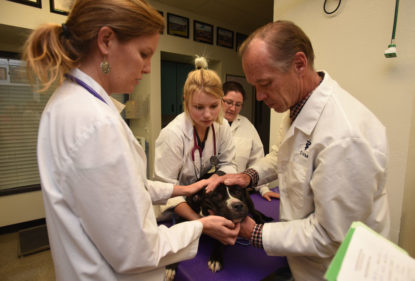Textbook
Myers
Aerial
students

Frequently Asked Questions Regarding the CMC Veterinary Technology Program
At CMC, Vet Tech students gain real-life experience handling large and small animals at a farm right on campus.
The farm provides opportunities not found at most Veterinary Technology Programs, especially training for large animals.
The Colorado Animal Rescue (CARE) shelter located adjacent to the farm provides high-quality care for animals awaiting adoption. This provides students with more opportunities to work with animals in a shelter setting.


